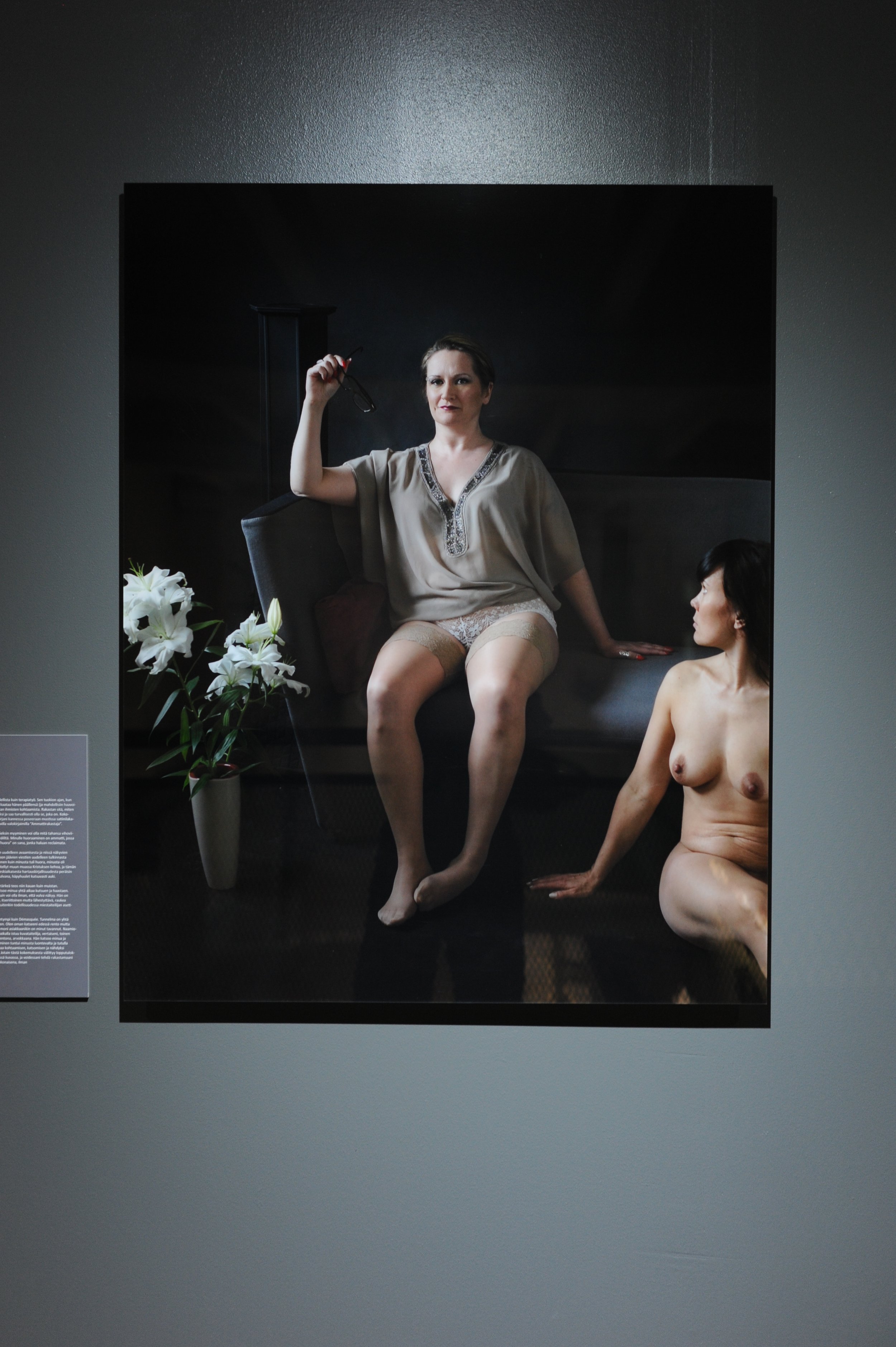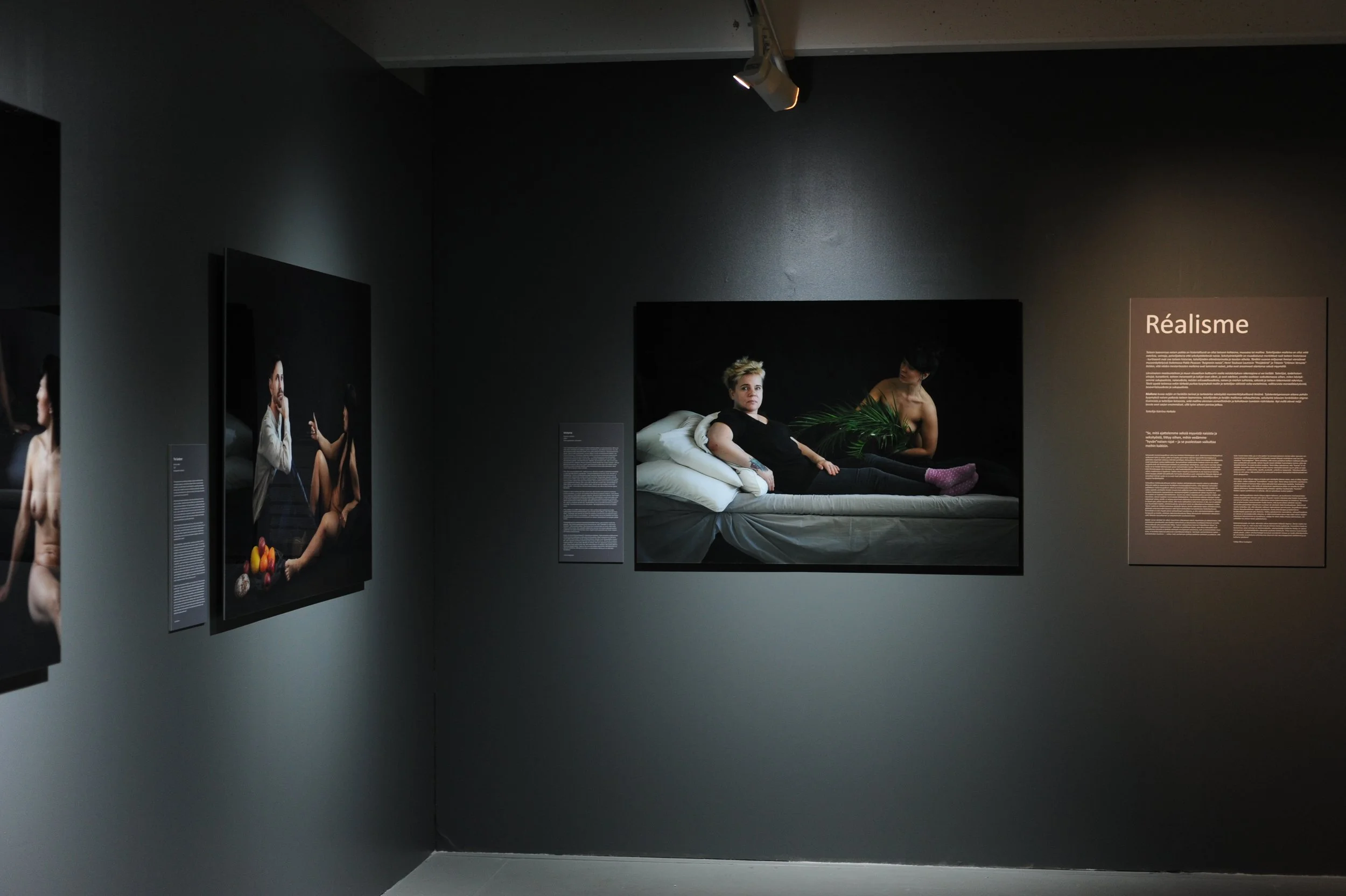This art project critically addresses the historical representation of women in the art canon, which has often portrayed them as objects rather than subjects. The conventional understanding of femininity perpetuated by the canon has been widely criticized for its lack of female artists and its reliance on stereotypical images of women. Despite these criticisms, the canon continues to dominate art museums throughout Europe, showcasing imagery that misrepresents prostitution in historical oil paintings.
In this project, I incorporated elements from photography, socially engaged art, and cultural criticism to challenge these prevailing narratives. Specifically, I created contemporary photographic interpretations of renowned works such as Manet's "Olympia" (1863) and "Le Déjeuner sur L'Herbe" (1863), Henri Gervex's "Rolla" (1878), and Akseli Gallen-Kallela's "Demasque" (1888). These original oil paintings share a commonality: they were all created by male artists and feature women who were either sex workers or viewed as such due to their nudity. The women in these paintings are depicted as muses and objects of desire, rather than complex individuals. However, these depictions do not align with the realities of women engaged in prostitution during the 19th century, nor do they accurately represent contemporary sex work.
The collection of photographs challenges the objectification and power dynamics inherent in the model-artist relationship, as well as the estrangement often found in historical artworks. It also examines the stereotypical roles assigned to women in the art historical canon and addresses common misconceptions about sex work. By having a feminist, female artist photograph men, women, and transgender individuals, the project disrupts the notion of the male artist immortalizing the muse. The intention is to represent sex work as something that is authentically voiced by individuals who have chosen to engage in it for various reasons.
A crucial aspect of this project lies in the stories shared by the individuals who participated in and posed for the photographs. These individuals, all of whom are former or active sex workers in Finland, shape their own narratives, offering their perspectives on sex work and its relationship to their personal identities. Their experiences and viewpoints add depth and authenticity to the project, highlighting the diversity of voices within the sex work community and challenging preconceived notions.
Exhibitions
Working group
Katriina Haikala, Tiia Forström, Jouni Forström, Jaru Kokkinen, Annu Väätäinen and Researcher Niina Vuolajärvi
Press
Realismé
"Victoria" Katriina Haikala Lambda print 2019 size 122 cm x 84 cm
“The Gardener” Katriina Haikala Lambda print, Silisec 2019 size 120 cm x 85 cm
“Sans Masque” Katriina Haikala Lambda print 2019 size 100 cm x 79 cm
Exhibition










